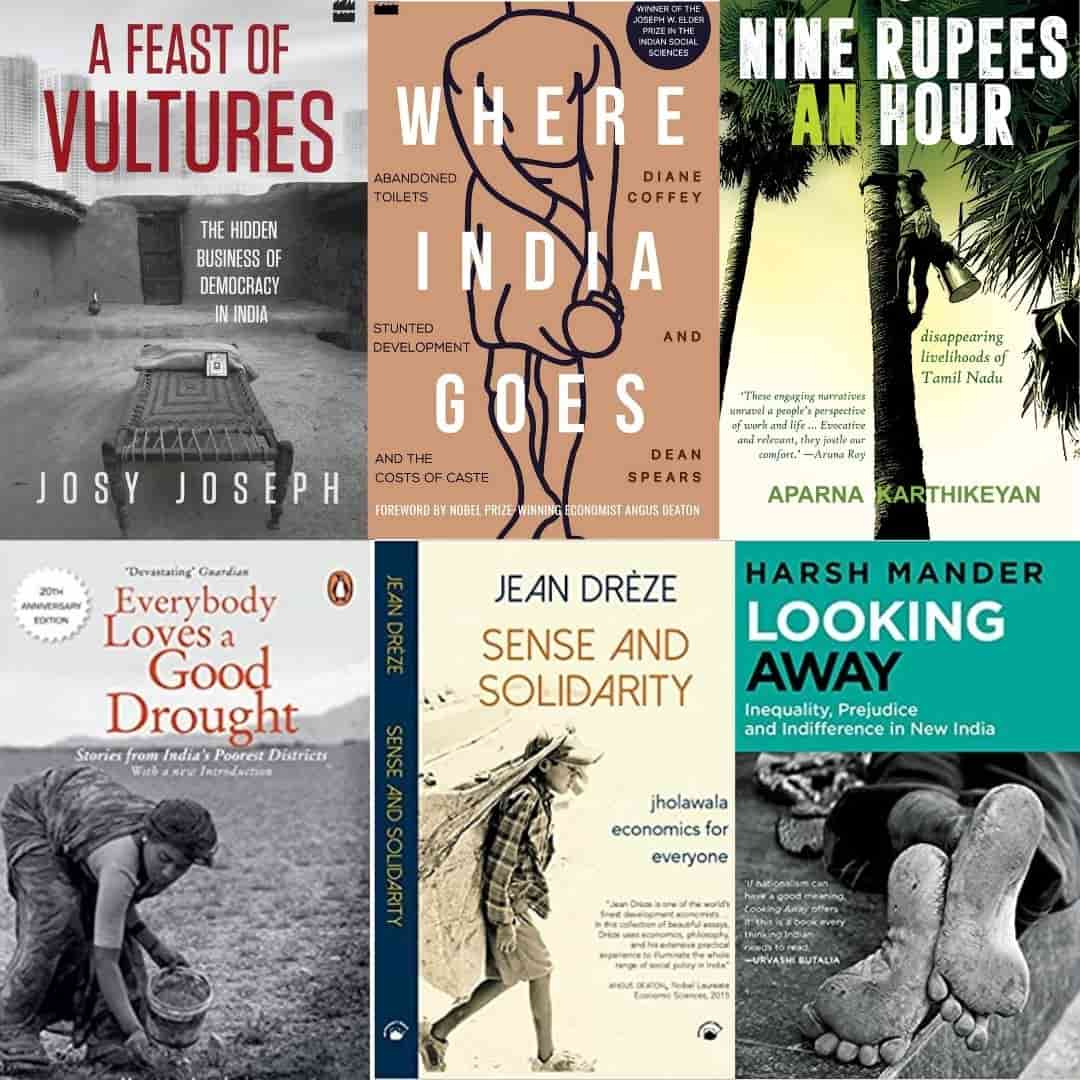
6 Books On Inequality In India
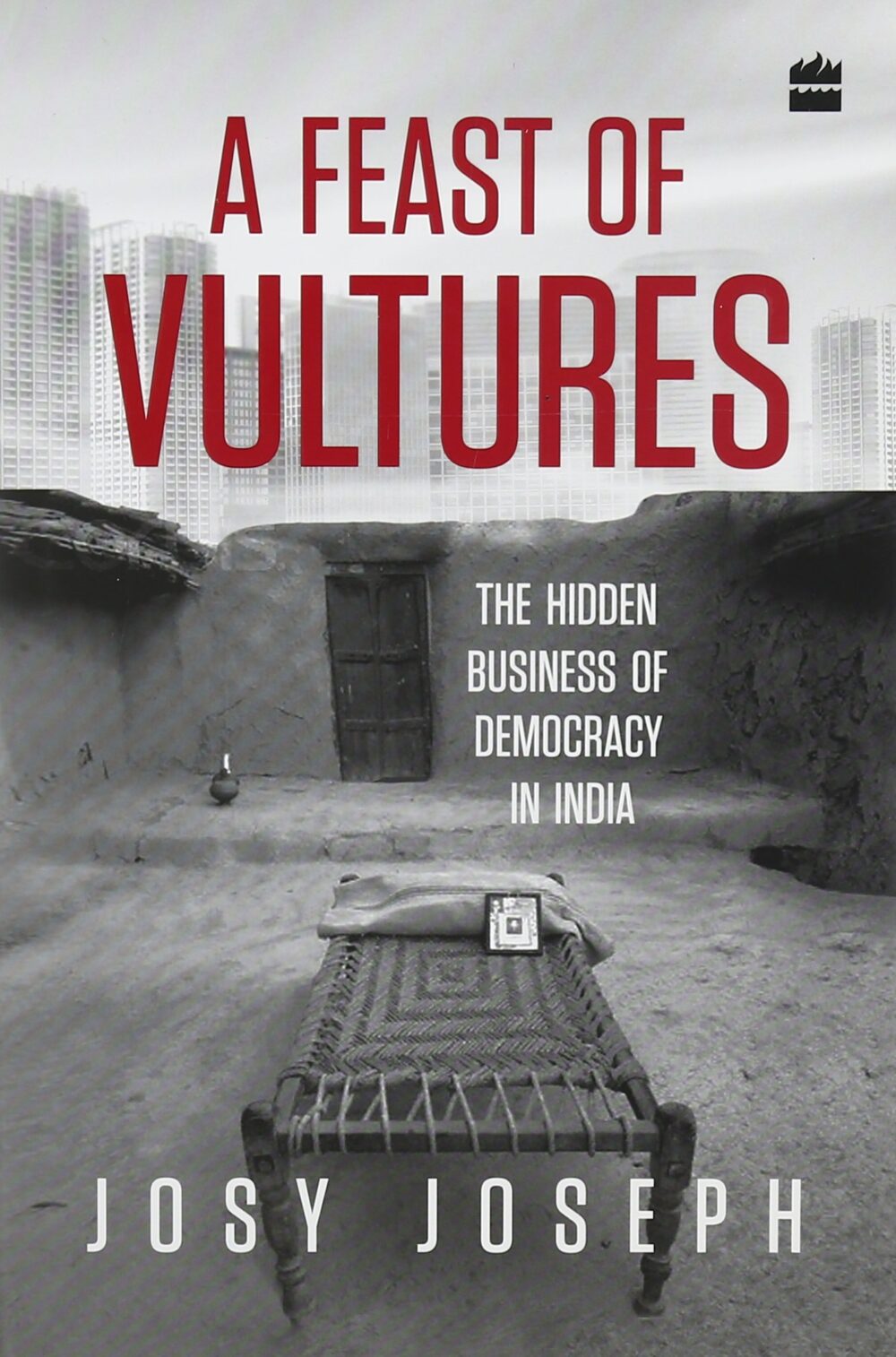
1. A Feast Of Vultures
“A Feast of Vultures” by investigative Journalist, Josy Joseph is a book that investigates the murky world of how things are done in India. It opens a portal for the readers to let them how things work in India. It documents how the country’s resources are plundered by the rich, the big business rivalries, and the corruption at every level of doing business which means profit for the richest of the rich at the cost of common citizens of the country.
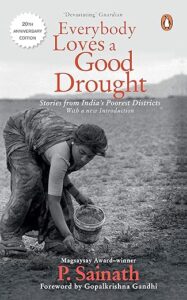
2. Everybody Loves A Good Drought
"Everybody Loves a Good Drought" is a brilliant book By P.Sainath, an Indian journalist and photojournalist focusing on social problems, rural affairs, poverty, and the aftermath of globalization in India and his work. This book is acclaimed across the world and prescribed in over 100 colleges. The book is listed among the Century’s Greatest Reportage (Ordfront, 2000).

3. Sense And Solidarity
'Sense And Solidarity' by Jene Dreze is a collection of essays on subjects that are considered bland but are very important. Jean presents his research work on various topics like poverty, hunger, drought, primary education, basic healthcare, employment, food security, and many more in simple and easy-to-understand language. Each essay gives you a deep insight into rural India.
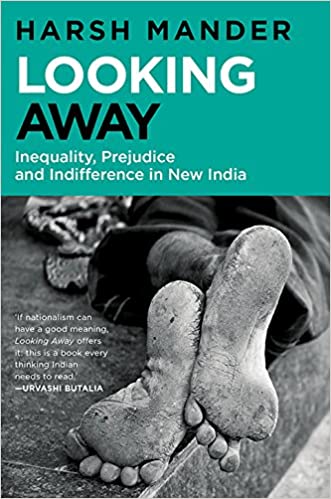
4. Looking Away
"Looking Away" is a book by Harsh Mandar, a writer, human rights worker, columnist, researcher and teacher. In the book he talks about the increasing prosperity among the middle and upper classes at the same time increasing poverty and hunger among the poorer section of the society. A must read to understand our prejudices and indifference towards others as individual and as a society
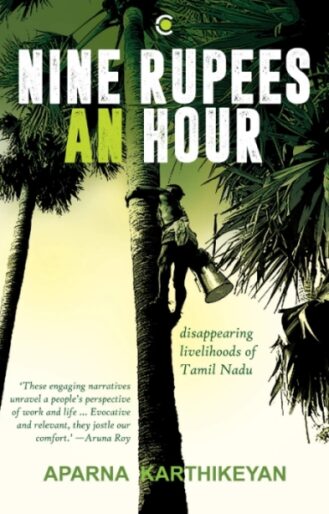
5. Nine Rupees An Hour
"Nine Rupees An Hour" by Aparna Karthikyenis primarily a collection of essays about rural Tamil Nadu and the vanishing of traditional jobs which is resulting in either people changing their jobs or migrating to cities. It also talks about the agrarian crisis, the water crisis, and other factors that are forcing people to change their jobs and thus forcefully migrating them to cities.
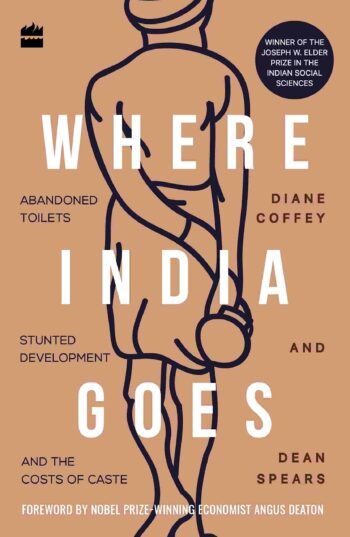
6. Where India Goes
" Where India Goes " is a well-researched and well-written book on a subject which many would not consider worth researching and writing. It gives the reader a new insight about open defecation and breaks so many myths of people living in in the urban area have about the open defecation and the reasons behind it. A must-read book for anyone who needs to understand about one of the biggest problems that India is facing right now.